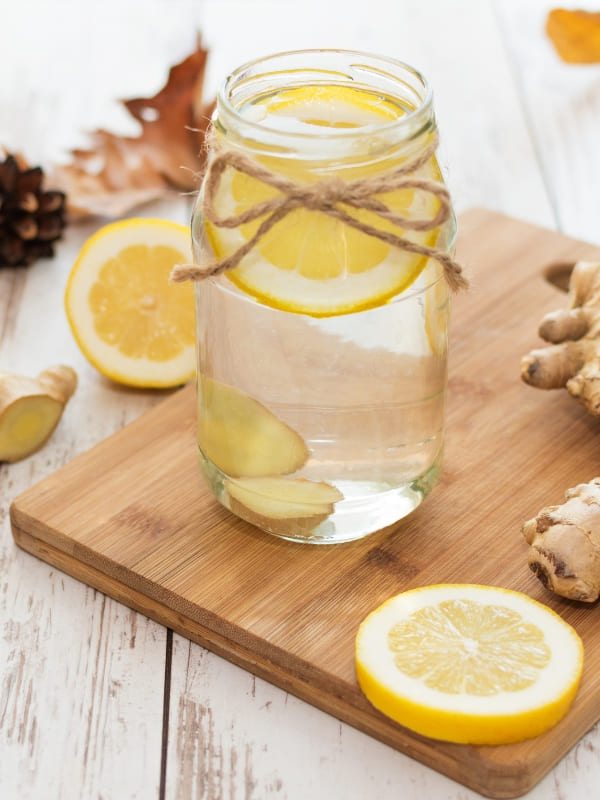Every year, millions of people suffer from strokes, a life-threatening condition that can lead to severe disability or even death. While medication and lifestyle changes are key to prevention, did you know that a simple lemon might be one of the most powerful natural allies in stroke prevention?
Lemons are packed with essential nutrients like vitamin C, flavonoids, and antioxidants that help keep your blood vessels healthy, reduce clot formation, and lower your risk of stroke.
Plus, they’re easy to incorporate into your daily diet! If you’re looking for a simple, natural way to boost heart and brain health, the lemon remedy might be exactly what you need.
Let’s explore how this citrus powerhouse can help protect you from strokes and keep your circulatory system in top shape.
How Lemon Helps Prevent Strokes
1. Lowers Blood Pressure Naturally
High blood pressure is one of the leading causes of strokes, and lemons can help keep it in check. The high vitamin C content in lemons improves blood vessel elasticity and lowers inflammation, making it easier for blood to flow smoothly.
According to a study published in Hypertension Research, daily lemon intake combined with walking significantly reduced systolic blood pressure in participants over time.
Adding lemon water to your routine could be a simple yet effective way to support heart health.

2. Reduces Blood Clot Formation
Strokes occur when a clot blocks blood flow to the brain, but lemons contain natural blood-thinning compounds that help reduce clot formation.
Citrus flavonoids, especially hesperidin, have been shown to improve circulation and prevent excessive clotting.
Research in The American Journal of Clinical Nutrition found that flavonoid-rich diets are linked to a lower risk of ischemic stroke, making lemons a must-have for those looking to protect their vascular health.
3. Prevents Oxidative Damage in the Brain
Free radicals can damage brain cells and contribute to stroke risk, but lemons are rich in antioxidants that neutralize these harmful compounds.
Vitamin C, a key antioxidant in lemons, has been shown in multiple studies to reduce oxidative stress, which is a major factor in stroke development.
Regular consumption of vitamin C-rich foods helps protect neurons and supports overall brain function.

4. Supports Healthy Cholesterol Levels
Lemon’s high pectin content helps lower LDL (bad cholesterol) levels, which is crucial for stroke prevention.
A study published in The Journal of Nutrition found that citrus pectin can significantly reduce cholesterol absorption in the gut, preventing plaque buildup in arteries. Less plaque means better blood flow and a lower chance of stroke.
5. Regulates Blood Sugar Levels
Uncontrolled blood sugar levels increase the risk of stroke, especially for diabetics. Lemons contain compounds that slow the absorption of sugar into the bloodstream, preventing dangerous spikes and crashes.
A study in Diabetes Care found that citrus polyphenols improve insulin sensitivity, making lemons a great addition to a stroke-prevention diet.

6. Enhances Blood Circulation
Good circulation ensures that oxygen and nutrients reach every part of your body, including your brain. Lemons contain potassium, which helps regulate heart function and promote proper blood flow.
Proper circulation reduces the risk of clot formation and stroke, keeping your brain well-nourished and functioning optimally.
7. Reduces Inflammation Linked to Stroke
Chronic inflammation contributes to stroke risk, and lemon’s anti-inflammatory properties help counteract this.
Flavonoids like diosmin and hesperidin in lemons have been shown to reduce inflammatory markers, protecting the arteries and the brain.
A study in Stroke found that individuals with higher flavonoid intake had significantly lower stroke incidence rates.

How to Use Lemon for Stroke Prevention
1. Lemon Water for Daily Detox
One of the simplest ways to incorporate lemon into your daily routine is by drinking lemon water. This refreshing and hydrating drink not only provides a boost of vitamin C but also helps flush out toxins, reducing oxidative stress and supporting vascular health.
To make it, squeeze the juice of half a lemon into a glass of warm water. Drink this first thing in the morning on an empty stomach to kick-start digestion and promote circulation.
For added benefits, you can mix in a pinch of turmeric or a teaspoon of honey, both of which possess anti-inflammatory properties. Drinking lemon water daily can have long-term positive effects on heart and brain health.

2. Lemon and Olive Oil Elixir
A classic Mediterranean remedy, the combination of lemon and olive oil is a powerhouse for cardiovascular well-being. Mix one tablespoon of extra virgin olive oil with half a lemon juice and consume this mixture before breakfast.
Olive oil is packed with healthy monounsaturated fats and polyphenols that improve cholesterol levels and enhance blood vessel function. The lemon juice works in tandem, increasing antioxidant levels and supporting overall circulation.
By making this simple elixir a part of your morning ritual, you may experience improved blood flow, reduced inflammation, and better protection against stroke.

3. Citrus Smoothie for Vascular Health
For those who enjoy a nutrient-packed breakfast or snack, a citrus smoothie is an excellent way to harness lemon’s benefits.
To prepare, blend the juice of one lemon with a banana, half an avocado, a handful of spinach, and a cup of water. This combination provides a potent mix of antioxidants, fiber, and healthy fats that support heart health.
To boost the smoothie’s omega-3 content, add a tablespoon of chia seeds or flaxseeds, both of which are known for their cardiovascular benefits.
Drinking this smoothie three to four times a week can help enhance circulation, fight oxidative damage, and lower the risk of stroke.

4. Lemon Zest in Your Meals
Most people discard lemon peels, but the zest is where many of the fruit’s powerful antioxidants are concentrated. Lemon zest contains bioflavonoids that protect brain health and blood vessels, making it a valuable addition to your diet.
To incorporate it, sprinkle fresh lemon zest over salads, soups, or grilled vegetables. It also works wonderfully in homemade dressings and marinades, adding a burst of flavor along with health benefits.
Aim to use lemon zest in your meals at least three times a week to maximize its protective effects against stroke.

Cautions and Precautions
Excessive lemon intake can lead to acidity issues, enamel erosion, and stomach discomfort. If you have gastroesophageal reflux disease (GERD), limit lemon consumption to avoid triggering symptoms.
Individuals on blood-thinning medications should consult a healthcare provider before increasing lemon intake, as its natural anticoagulant properties may enhance medication effects. Also, if you have low blood pressure, excessive lemon consumption could cause dizziness or fatigue.
Before applying lemon-based remedies topically, conduct a patch test to ensure no allergic reactions occur, especially for those with sensitive skin.
Disclaimer
This article is for informational purposes only and does not substitute professional medical advice. Always consult a healthcare provider before making dietary or lifestyle changes, especially if you have pre-existing conditions.

Can Lemon Reduce Your Stroke Risk? Science Says Yes
